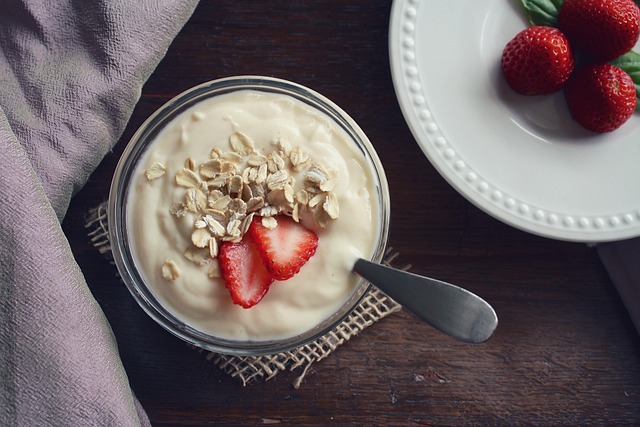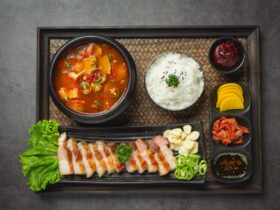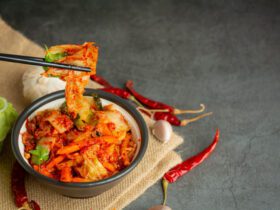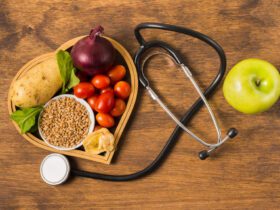A high-protein, low-calorie diet may be exactly what you need to achieve your weight loss or muscle-building goals. The goal of this diet is to keep your calorie intake as low as possible. While still giving your body the protein it needs to grow and repair muscle tissue.
So, what exactly is a high protein low-calorie diet? Simply put, it’s a diet that emphasizes foods that are high in protein and low in calories. This means you’ll be eating foods like lean meats, fish, eggs, low-fat dairy products, and vegetables while limiting your intake of high-calorie foods like sweets, fried foods, and processed snacks.
To get started on a high protein low-calorie diet, focus on incorporating protein-rich foods into meals and snacks. Aim to eat at least 20-30 grams of protein per meal, and choose low-calorie sources of protein whenever possible.
Here are some examples of high protein low-calorie foods:
Skinless Chicken Thigh:

Skinless chicken breast is the best source of lean protein. A 3.5-ounce portion has 32 grams of protein, making it essential for anybody trying to reduce calories without sacrificing muscle growth. To keep it tasty and light, choose healthier cooking techniques like baking or grilling.
Turkey Breast:
A different type of chicken that has a high protein content with fewer calories is the turkey breast. With 30 grams of protein per 100 grams, it is a lean option that is also nutrient-dense, and high in zinc and selenium. Add it to salads, sandwiches, or thick soups for a filling lunch.
Shellfish:

Seafood lovers rejoice! Shellfish such as shrimp and lobster offer a protein-packed punch with minimal calories. Indulge in a 100-gram serving of shrimp for 22.8 grams of protein and less than 2 grams of fat. These ocean treasures also deliver essential nutrients like zinc and iron to support your health journey.
White Fish:
Explore the world of white fish to get a protein boost that is low in calories. You may eat guilt-free since fish kinds like cod and halibut include 19 grams of protein per 3.5-ounce meal. They also include high levels of essential elements including magnesium and vitamin D as well as heart-healthy fats.
Eggs:

The protein powerhouse that is an egg may start your day off well. They’re a flexible choice for every meal, including more than 12 grams of protein per 100 grams. Eggs aren’t only for breakfast; they can add flavor to stir-fries and salads alike.
Greek Yogurt:
Replace high-calorie snacks with plain Greek yogurt that is low in fat. It is a pleasantly creamy way to nourish your body, with each 156-gram amount containing 16 grams of protein. Greek yogurt packs a protein punch to your diet, whether it’s eaten on its own or in dishes.
Cottage Cheese:

Say cheese to cottage cheese, a protein-packed delight with only 163 calories per cup. With 28 grams of protein and a slew of essential nutrients, it’s a versatile addition to your menu. Enjoy it sweet or savory, as a snack or main course.
Tofu:
For plant-based protein seekers, tofu is a nutritional powerhouse. With 21.8 grams of protein per half cup, it’s a satisfying addition to any meal. Plus, it’s a complete protein source, offering all the essential amino acids your body needs for optimal health.
Low-Calorie Foods:
Finding the right balance between limiting your calories and protein consumption is essential when trying to control weight. While reducing your calorie intake may seem difficult, choosing low-calorie, high-nutrient foods can make the process easier. For long-lasting energy and fullness, embrace high-fiber carbs like whole-grain bread, fruit, legumes, and lentils. As an alternative, focus on protein-rich foods that come from both plant and animal sources to accommodate a range of dietary choices. There are many different plant-based protein choices to choose from for vegetarians and vegans. Creating a healthy, low-calorie lunch requires using whole foods instead of processed ones for maximum health advantages. Learn the skill of mindful eating to get the most out of your food’s nutrients without compromising taste or enjoyment.
These are the greatest satisfying, low-calorie items to have on hand in your fridge and pantry to help you stay full
Spinach

A nutrient-dense powerhouse, spinach is a great complement to any dish. This leafy green, which has fewer than 7 calories per cup, is rich in antioxidants and important vitamins including magnesium, manganese, folate, and vitamin K. Spinach’s high fiber content not only promotes good digestion but also helps you feel fuller for longer. Whether it’s mixed into pasta recipes, pureed into smoothies, or added to salads, spinach gives your plate an extra nutritional boost.
Apples
When it comes to fruits that are good for weight reduction, apples are unique since they only have about 100 calories per fruit. According to research, eating apples can help you reach your weight reduction objectives. In fact, one study found that individuals lost weight after just three apples a day for ten weeks. In fact, when it comes to keeping a healthy weight, the proverb “an apple a day” is quite genuine.

Raspberries

Craving something sweet? Reach for raspberries! These juicy berries offer a naturally sweet flavor with minimal calories, only 64 per cup. What’s more, they pack a whopping 8 grams of fiber, contributing to feelings of fullness and aiding in digestive health. Rich in vitamin C, raspberries also support immune function and enhance iron absorption, making them a tasty and nutritious choice for snacks or desserts.
White mushrooms
White mushrooms, while technically fungi, offer a meaty texture and savory flavor that make them a favorite among vegetarians and vegans. With approximately 44 calories per cooked cup, mushrooms provide an array of essential nutrients, including B vitamins and selenium. Incorporate them into your meals for a flavorful boost that supports overall health and wellness.

Celery

A mainstay of every low-calorie diet plan is celery, which is well-known for its high water content. Because each cup only has 17 calories, it’s a favorite for guilt-free snacking. Combine celery sticks with raisins and natural peanut butter for a filling and healthful blend of fiber, protein, and good fats that will satisfy your appetite without interfering with your weight reduction attempts.
Cucumber

Cucumber is a crisp, hydrating snack option. A modest 45 calories a cucumber makes them a guilt-free between-meal snack. When eating dips or spreads, replace starchy crackers with slices of cucumber to save calories without sacrificing flavor or moisture or fiber. This light and calorie-dense delight will be much appreciated by your digestive tract.
Strawberries
Not to mention, taste the mouthwatering taste of strawberries without feeling guilty. These colorful berries are not only tasty but also nutrient-dense, weighing only 53 calories per cup. Strawberries are a wise choice to support long-term health because regular consumption has been related to protection against diseases like Alzheimer’s and heart disease.


Portion Control:
Monitor portion sizes: Be mindful of serving sizes to avoid overeating, even with healthy foods.
Balanced meals: Include a balance of protein, healthy fats, and carbohydrates in each meal.
Regular meals: Aim for regular, smaller meals throughout the day to maintain energy levels and control hunger.
Hydration:
Drink water: Staying hydrated is essential for overall health and can also help control appetite.
Limit sugary beverages: Avoid high-calorie, sugary drinks, and opt for water, herbal tea, or other low-calorie options.
Let’s talk deeply about the benefits of high protein low-calorie diet:
- High protein low-calorie diet, focus on incorporating protein-rich foods into each of your meals and snacks. Aim to eat at least 20-30 grams of protein per meal, and choose low-calorie sources of protein whenever possible.
- One of the biggest benefits of a high protein low-calorie diet is that it can help you feel full and satisfied, even while eating fewer calories. Protein is known to be more satiating than carbohydrates or fats, meaning it can help curb your appetite and keep you feeling full for longer periods of time. This can help you stick to your diet plan and avoid overeating.
A high-protein, low-fat, low-calorie diet has several advantages. Foods high in protein may make you feel satisfied for extended periods, which may assist with weight management. Protein is also necessary for the synthesis and maintenance of tissues, which makes it crucial for the health of muscles. Selecting low-fat and low-calorie foods can improve general health and aid with weight control. To promote general well-being, it’s crucial to make sure your food is well-balanced and rich in a range of nutrients.

- Weight Loss: Say goodbye to stubborn fat by using a low-calorie, high-protein diet. Protein can help you fight overeating by reducing overall calorie intake and increasing fullness. Greetings from a slimmer you!
- Enhanced Muscle Growth: Excited exercisers and sportsmen here! A diet high in protein provides the building blocks for strong muscular development and effective muscle repair. Bid farewell to discomfort after a workout and hello to a stronger, more resilient body.
- Decreased Risk of Chronic Illnesses: Guard against the impending dangers of diabetes, heart disease, and cancer for your future self. A diet heavy in protein and low in fat fortifies your body to fend against these sneaky foes.
- Better Bone Health: Don’t allow brittle bones to impede your progress. Accept that protein can help you have more bone mass and delay the onset of osteoporosis. You’re making an investment in a more robust, durable skeleton with every meal.
- Better Brain Function: Increase your level of cognitive function with protein. Your brain functions at its best when neurotransmitter synthesis is stimulated. Hello to better memory retention and focused attention.
- Boosts Metabolism: Protein revs up your body’s calorie-burning machinery. Its strong thermic impact causes your body to burn calories more quickly. Get ready to see those extra pounds go.
- Keeps You Fit: Protein helps you age gracefully. Preserve valuable muscle mass far into old age and fight sarcopenia. Remain resilient and lively.
- Elevates Your Spirit: Take use of protein to elevate your mood. A continuous dose of dopamine and norepinephrine can lift your mood and drive away tension. Greetings from a happier, more vibrant self.
But it’s essential to remember that different sources of protein have different qualities. It is advised to select lean protein sources such as beans, fish, poultry, and low-fat dairy products. Furthermore, cutting back on fat does not entail giving up all fats. Certain fats, like those in avocados, nuts, and seeds, are good for your general health and should be a part of a balanced diet.
How do you determine how much protein you need on a high protein low-calorie diet?
It’s recommended that adults aim for at least 0.8 grams of protein per kilogram of body weight per day. However, if you’re looking to build muscle or lose weight, you may need more protein than this. Some experts recommend consuming up to 1.5 grams of protein per kilogram of body weight per day, especially if you’re engaging in regular exercise.
When it comes to choosing protein sources for a high protein low calorie diet, it’s important to choose foods that are low in calories and high in protein. Lean meats, such as chicken breast and turkey, are great options, as are fish and seafood. Vegetarian options include tofu, tempeh, and legumes such as lentils and chickpeas.

Some sources of protein, such as red meat and processed meats, have been linked to an increased risk of heart disease and other health problems when consumed in excess. Therefore, it’s important to choose a variety of protein sources and balance your protein intake with plenty of fruits, vegetables, whole grains, and healthy fats.
To ensure that you’re meeting your nutrient needs on a high protein low calorie diet, it’s a good idea to work with a registered dietitian or nutritionist. They can help you develop a personalized meal plan that meets your individual needs and goals.
High protein low-calorie diet can be a great way to promote weight loss, build muscle, and support overall health. By choosing protein-rich, low-calorie foods and balancing your macronutrient intake with plenty of fruits, vegetables, whole grains, and healthy fats, you can achieve your health and fitness goals while still enjoying delicious, satisfying meals.
Consultation with a Professional:
Before starting any diet, especially one that involves significant changes to your nutrition, it’s advisable to consult with a healthcare professional or a registered dietitian. They can provide personalized advice based on your individual health needs and goals.
Remember, individual nutritional needs can vary, and what works for one person may not be suitable for another. It’s essential to find a balance that aligns with your specific health and fitness objectives.







1 Comment